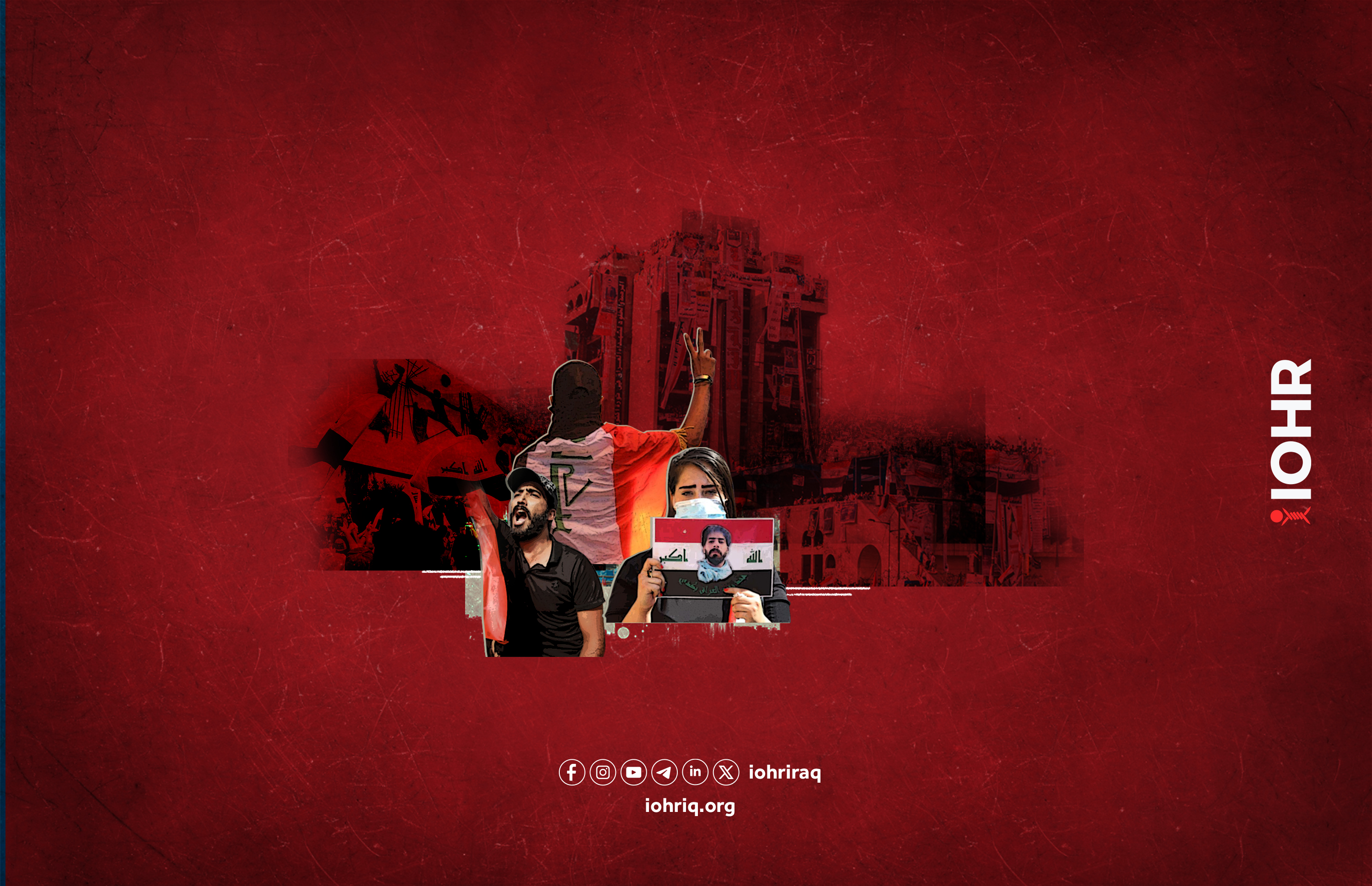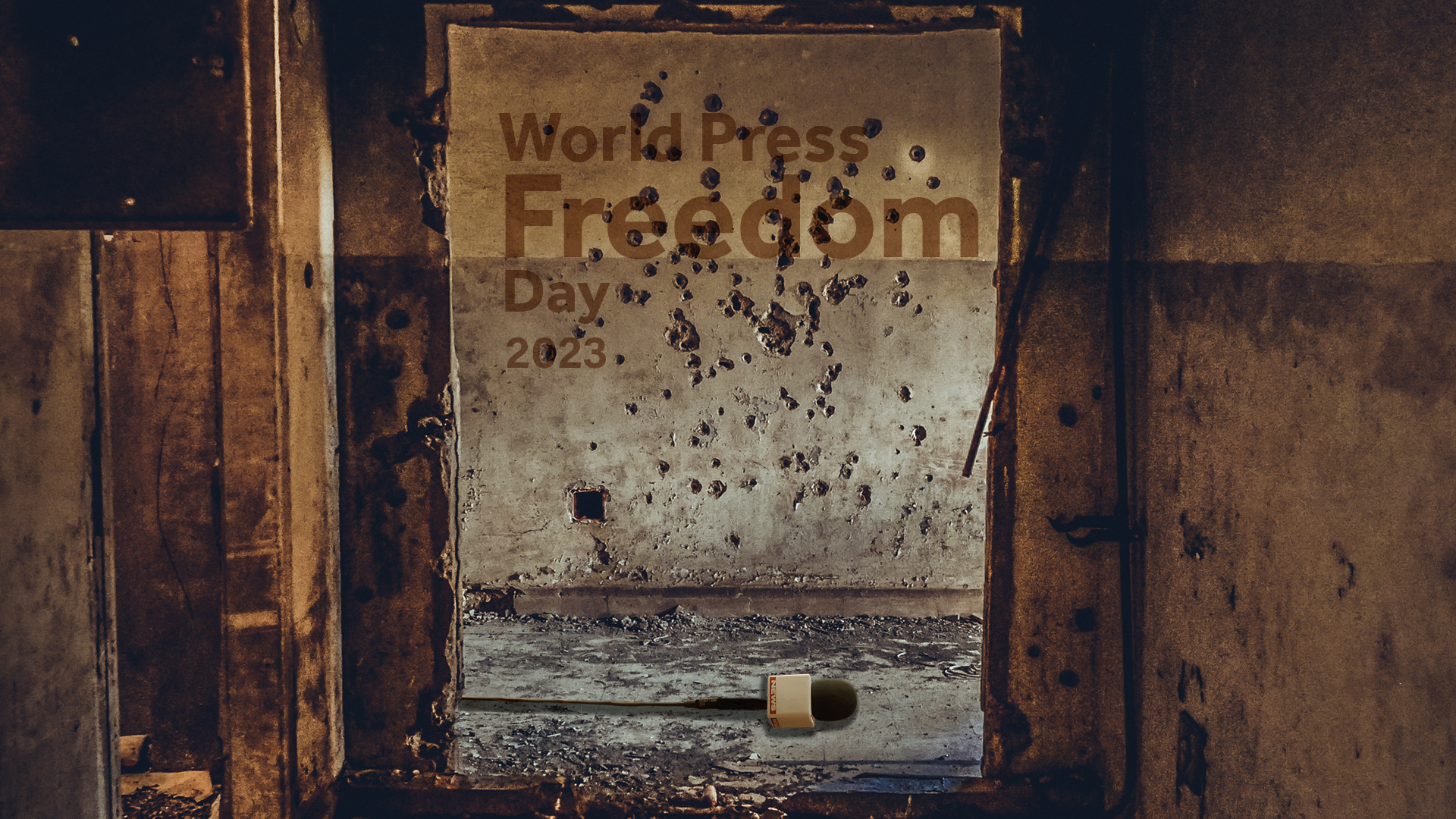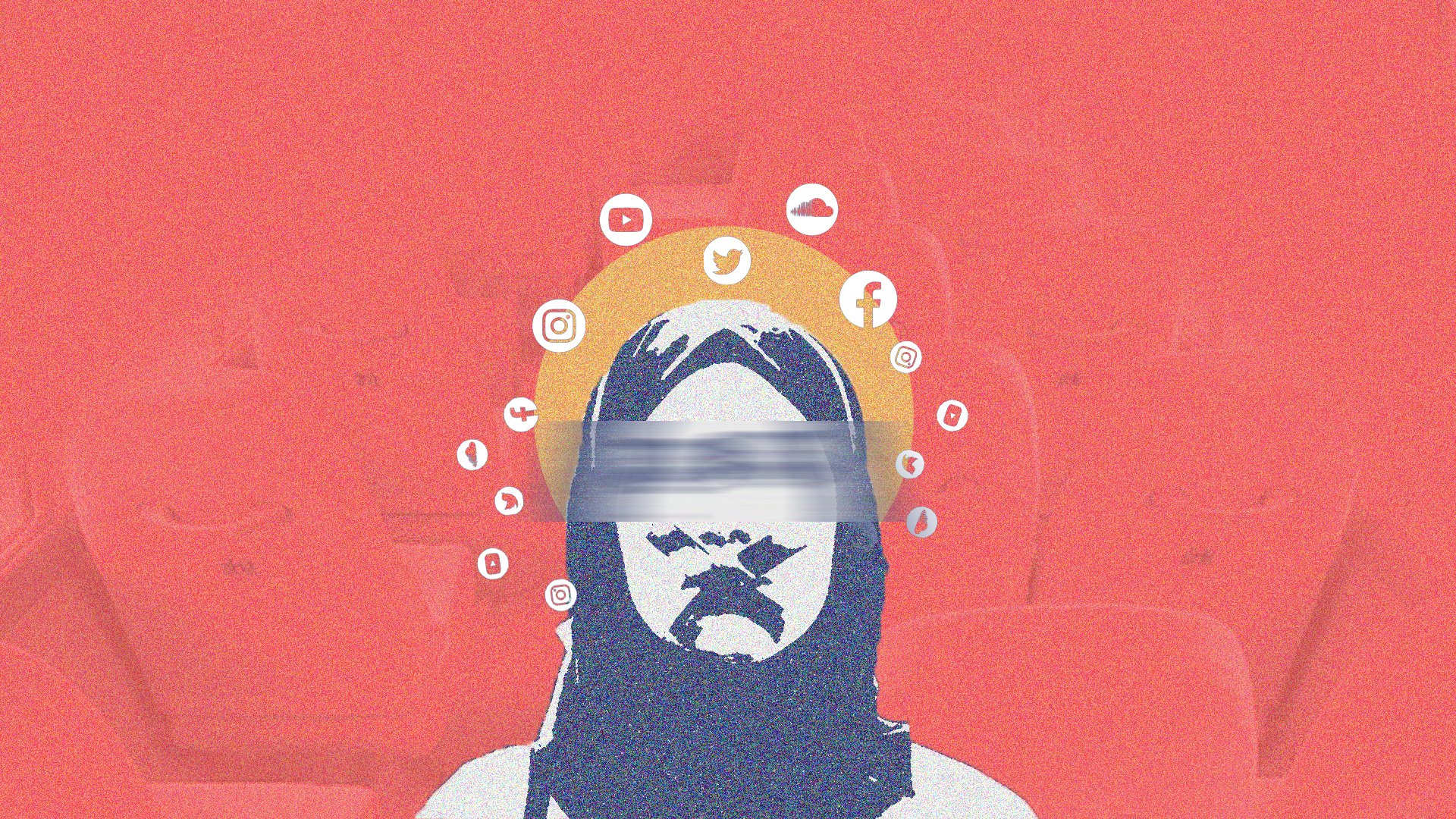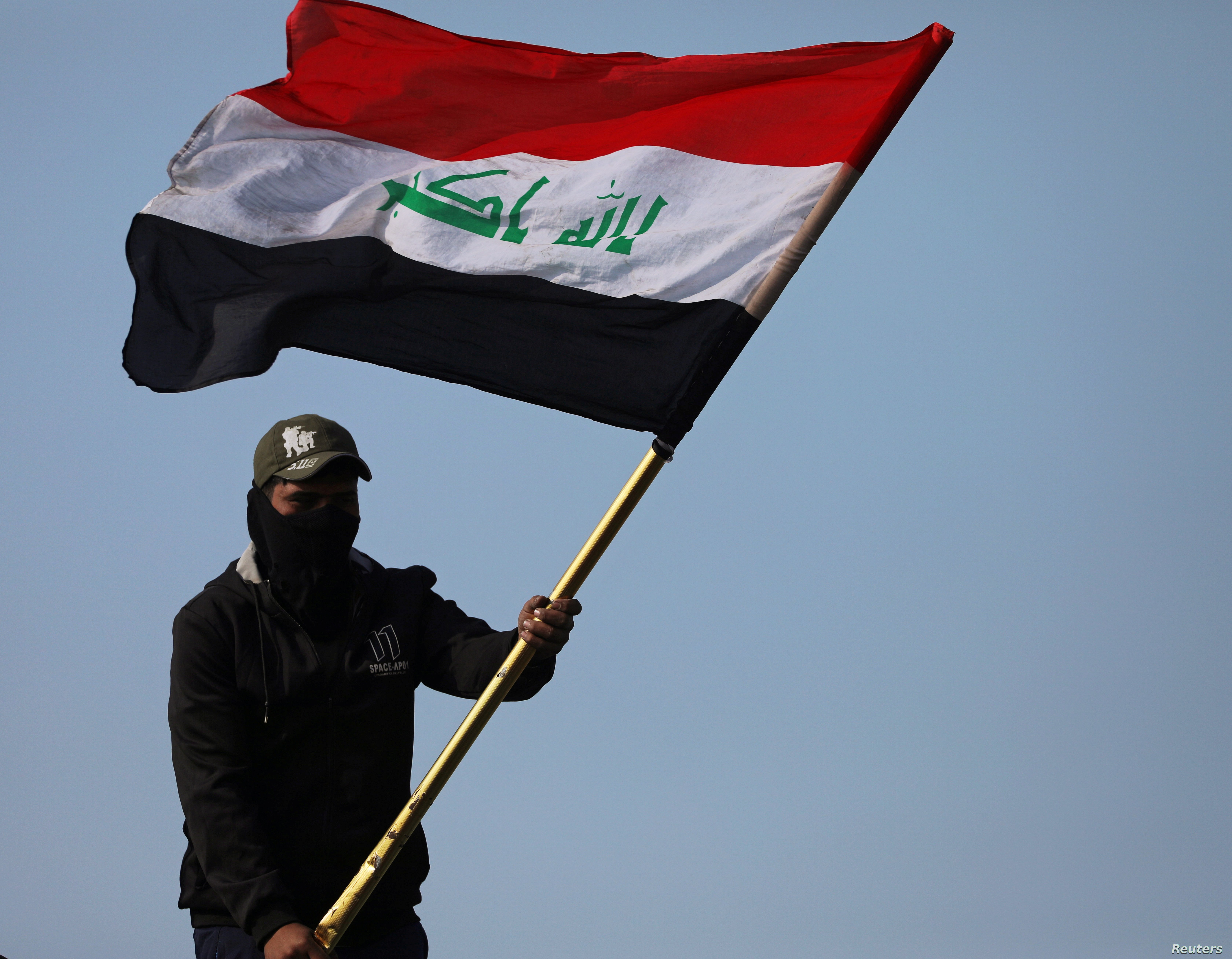October 1, 2025
On this very day six years ago, the streets of Baghdad and the southern cities resounded with the voices of thousands of young people. They carried Iraqi flags and raised simple banners, chanting for dignity, justice, and the right to a homeland free of corruption. Their dreams were modest: a decent life, a job, a small home, and a future worth living. What they encountered instead was bullets, smoke, and blood.
On October 1, 2019, the October protests erupted. They were not just fleeting demonstrations, but an explosion of popular anger suppressed for years. Unemployed youth, university students, fathers and mothers, all came out with uncovered faces demanding reform for their country.
Their slogan was simple: “We want a homeland.” Yet the response came swiftly and brutally. Live ammunition was fired directly at the chests of young protesters, tear gas canisters shattered skulls, and stun grenades ripped through public squares. Within days, Tahrir Square in Baghdad, and the squares of Najaf, Karbala, and Nasiriyah had turned into theaters of mass death.
More than six hundred demonstrators were killed, and thousands were injured, some bearing wounds and scars that will never heal. Many were forcibly disappeared, abducted from the streets or from their homes, never to be seen again. Parents still live with the faint hope their children will return, but the state has offered them nothing but silence.
The violence was not confined to regular security forces. Influential armed groups also participated, carrying out assassinations against prominent activists. In Karbala, Ihab al-Wazni was gunned down in cold blood. In Amarah, Amjad al-Dahamat was murdered. In Baghdad, Nasiriyah, and Basra, activists such as Lodia Raymond and others survived repeated assassination attempts. The message was clear: silence every voice that calls for freedom.
Despite all these crimes, the doors of justice remained firmly closed. Successive governments after October, beginning with the resignation of Prime Minister Adel Abdul Mahdi in November 2019, made promises of investigations and accountability. Numerous official committees were formed, but to no avail. Not a single senior officer or political leader was brought to trial. Impunity became the unwritten law.
What happened in October was not just local repression; it was a flagrant violation of international law. Iraq has been a party since 1971 to the International Covenant on Civil and Political Rights, which guarantees the right to life, prohibits torture, and protects the freedom of peaceful assembly. The Iraqi constitution itself, in Article 38, guarantees freedom of expression and assembly. Yet all these texts turned into mere ink on paper in the face of the snipers’ bullets.
Today, six years on, the families of the victims are still waiting for a word of truth. They want to know who killed their children, who gave the orders, and why the killers remain free. They want to feel that the blood of their sons and daughters was not shed in vain. Yet the state has given them only silence and disregard, while armed factions continue to wield unchecked power.
Justice is not a luxury, nor merely a political demand. It is a human and moral necessity. Without justice, the wounds of October will never heal, and the cycle of violence will not end. Impunity means these crimes can and will be repeated, and that new blood may be spilled at any moment.
Reparations for victims’ families are the first step towards restoring trust. They have not only lost loved ones, but also the stability of their entire lives. Many children have been orphaned, many mothers live in perpetual mourning, and countless families require urgent psychological and social support.
Since the first days of October, the Iraqi Observatory for Human Rights (IOHR) has continued to document violations and call for independent and transparent investigations. Today, on the sixth anniversary, IOHR reaffirms that the time has come to put an end to procrastination. Without genuine political will to hold perpetrators accountable, justice will remain out of reach.
IOHR believes that what happened during the October protests was not merely individual excesses but a series of grave violations committed in an organized manner, met with no serious accountability measures. Impunity has not only deepened the sense of betrayal among victims and their families, but also sent a dangerous message that the use of violence against peaceful demonstrators can go unpunished.
For this reason, IOHR stresses that the path to justice begins with independent, transparent investigations, under genuine judicial authority and with international guarantees, to reveal the full circumstances of killings, enforced disappearances, and assassinations targeting protesters and activists. Such investigations cannot be cosmetic or politically driven; they must lead to genuine accountability for all those involved, regardless of their positions within the state apparatus or armed groups.
IOHR further emphasizes that the financial compensation given to some families of the martyrs does not amount to real justice. Fair reparation must be comprehensive—covering medical and psychological care for the injured and survivors, and concrete measures to reintegrate them into society, with guarantees of non-repetition. Compensation cannot be a substitute for justice, but only a complement to it.
Without guaranteeing the right to peaceful protest in the future, Iraqis’ fundamental rights will remain threatened. Protest is an essential means of expression, and restricting or repressing it constitutes a violation of the Iraqi constitution and international agreements to which Iraq is a party. Therefore, the authorities must take concrete measures to protect this right and prevent any new targeting of demonstrators.
In addition, IOHR believes that engaging civil society in monitoring political and legislative reforms is indispensable. The protests were a popular cry against marginalization; any reform process that excludes civil society will remain incomplete and devoid of trust.
Finally, IOHR makes a clear call to the Iraqi government: justice is not optional. It is an essential tool to break the cycle of impunity and to ensure such crimes never recur.




